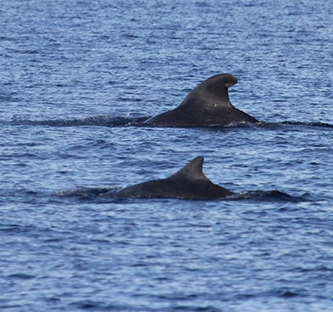Davao Gulf is located in the southeastern part of Mindanao and is one of the richest national zones for fish production. It ranks as one of the priority conservation areas of the Sulu-Sulawesi Marine Ecoregion. It is a breeding and nursery ground for small and large pelagic species, with frequent sightings of whale sharks, dugongs and leatherback turtles, among the list of species cited in the Convention on the International Trade of Endangered Species (CITES).
Sadly, Davao Gulf is being threatened by the very economic activities it supports. Seen along the coast are extensive coastal tourism development projects, ports, oil depots, factories and other capital-intensive industries that are perceived to exert pressure on the quality of the water, the natural habitats and the productivity of its fisheries.
WWF’s Marine Key Biodiversity Areas (MKBA) project works to conserve the rich marine habitats in the gulf, ensuring that natural benefits are preserved. Through the UNDP and GEF funding, it aims to form a network of marine protected areas (MPAs) which are ecologically linked with each other, as based on connectivity studies.
Currently involved are 19 MPAs situated in the five cities and five municipalities of the Davao Gulf. The main thrust of the project is to improve the management of these existing MPAs leading to the formation of a network, financial sustainability for the management of both these MPAs and the network, plus the formulation of a policy framework supporting sound marine biodiversity conservation. Recently, the project inked a Memorandum of Agreement with the Davao Integrated Development Program, a quasi-government body formed by the local government units of the Davao region to consolidate all efforts in pursuing integrated development, including both coastal and marine areas. The Project also helped in updating the management plans of 14 MPAs where 13 of these have reconstituted their management bodies. A Fishery Law Enforcement Training was also conducted for three (3) barangays of Sta. Cruz, Davao del Sur, where a total of 33 individuals participated and conducted in partnership with DA-BFAR and the PNP Maritime Group.
WWF is also working with Century Pacific Food to transform unsustainable tuna fishing practices in the Davao Gulf, since many tuna fishers displaced from General Santos have relocated to the area. Initiatives range from strengthening local tuna fishers' associations to creating a science-based tuna fisheries management plan.
STORIES FROM THE FIELD
17 Sightings in Davao Gulf Survey
A recent 6-day survey proved that the Davao Gulf is one

